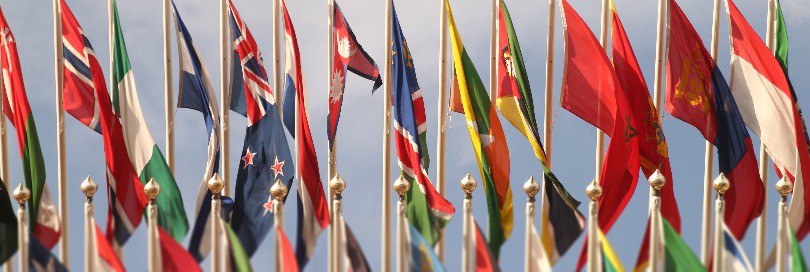Consular transactions, consular invoice

Adobe Stock
- Topic: restrictions, trade barriers

Adobe Stock
The American export control authority, the Bureau of Industry and Security, has published an updated version of “Don't let this happen to you!” - an introduction to the consequences of violating … US export control law. As a European company, you may wonder why this should concern you. This is due to the unique nature of US export control laws, which apply extraterritorially. In this overview, we provide a brief summary of some important aspects and practical examples of infringements.
Sabine van Osenbrüggen
The American export control authority, the Bureau of Industry and Security, has published an updated version of “Don't let this happen to you!” - an introduction to the consequences of violating US export control law. As a European company, you may wonder why this should concern you. This is due to the unique nature of US export control laws, which apply extraterritorially. In this overview, we provide a brief summary of some important aspects and practical examples of infringements.
Sabine van Osenbrüggen
The import of furs of wildlife into the State of Israel is under a strict supervision of the Nature and Parks Authority, which is department of the Israeli Ministry of Environmental Protection. … This is part of a larger issue of importing animals or parts of them, but in this article we will focus on the import of furs into Israel. It’s an interesting example, which we believe is not common elsewhere, due to a very specific piece of Israeli law. This law forbids importing wildlife fur, unless they meet the conditions of one of a very few exceptions. One of the key exceptions is fur for religious purposes. The Israeli Customs Authority, which is authorized to supervise imports, serves as the Nature Authority long arm to check the compliance of imports when a shipment containing animal fur arrives in Israel.
Omer Wagner
The import of furs of wildlife into the State of Israel is under a strict supervision of the Nature and Parks Authority, which is department of the Israeli Ministry of Environmental Protection. This is part of a larger issue of importing animals or parts of them, but in this article we will focus on the import of furs into Israel. It’s an interesting example, which we believe is not common elsewhere, due to a very specific piece of Israeli law. This law forbids importing wildlife fur, unless they meet the conditions of one of a very few exceptions. One of the key exceptions is fur for religious purposes. The Israeli Customs Authority, which is authorized to supervise imports, serves as the Nature Authority long arm to check the compliance of imports when a shipment containing animal fur arrives in Israel.
Omer Wagner
Registration, Evaluation, Authorisation and Restriction of Chemicals (REACH) regulation is the EU’s main instrument to protect human health and the environment from the risks that can be posed … by chemicals. The legislation places a registration obligation on the importer. However, the definitions of the importer and import under the REACH legislation do not align with the customs terminology. The article demonstrates what happens when discrepancies arise.
Dr David Savage
Registration, Evaluation, Authorisation and Restriction of Chemicals (REACH) regulation is the EU’s main instrument to protect human health and the environment from the risks that can be posed by chemicals. The legislation places a registration obligation on the importer. However, the definitions of the importer and import under the REACH legislation do not align with the customs terminology. The article demonstrates what happens when discrepancies arise.
Dr David Savage
On 14 May, U.S. President Joe Biden placed a 100% tariff duty rate on imports of Chinese Electric Vehicles (EVs). The reasoning was that the low cost of Chinese EVs needs to be counterbalanced … by tariffs so that domestic manufacturers can compete fairly against Chinese imports. Editors’ note: For developments in the EU, see ‘EU law news June 2024’.
Ira Reese
On 14 May, U.S. President Joe Biden placed a 100% tariff duty rate on imports of Chinese Electric Vehicles (EVs). The reasoning was that the low cost of Chinese EVs needs to be counterbalanced by tariffs so that domestic manufacturers can compete fairly against Chinese imports. Editors’ note: For developments in the EU, see ‘EU law news June 2024’.
Ira Reese
Authors of the article speak about their personal experiences regarding the early days of the EU Carbon Border Adjustment Mechanism (CBAM). David Savage, based in Ireland, discusses the challenges … encountered by importers in the small and medium enterprise (SME) sector, while Svitlana Siurik as a trade compliance professional, based in Belgium, recounts her experiences from the perspective of a large multinational company.
Dr David Savage , Svitlana Siurik
Authors of the article speak about their personal experiences regarding the early days of the EU Carbon Border Adjustment Mechanism (CBAM). David Savage, based in Ireland, discusses the challenges encountered by importers in the small and medium enterprise (SME) sector, while Svitlana Siurik as a trade compliance professional, based in Belgium, recounts her experiences from the perspective of a large multinational company.
Dr David Savage , Svitlana Siurik
* Mandatory fields
By signing up you agree to the Terms of Use and Privacy Policy
or Sign up
Already have an account? Login here
Already have an account? Login here
or Sign up
Comments ()
To post a comment you need to